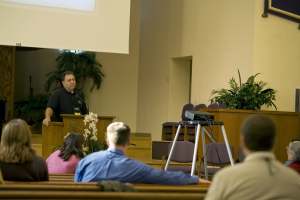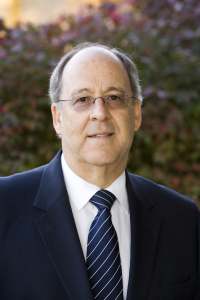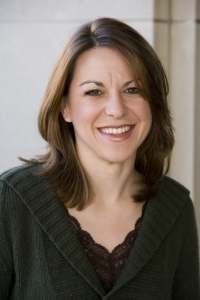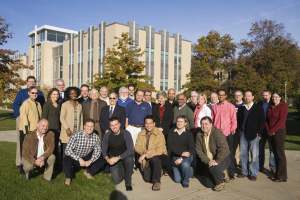Contact: director@180symposium.org
Website: http://www.180symposium.org
Phone: 1-800-968-8428
The youth of the Seventh-day Adventist Church are slipping out the back door. This paramount concern of the Seventh-day Adventist Church was the focus of the “180 Symposium: Slipping Out the Back Door—Issues in Ministering to Millennials*,” a gathering of ministry professionals from around the world sponsored by the Center for Youth Evangelism at Andrews University in Berrien Springs, Mich.
This three-day symposium, held Oct. 21–23, 2008, started with an open session where many participants presented research papers followed by a Q&A discussion. The symposium provided a forum allowing candid, honest presentation of concerns and discussion of possible solutions to the mass exodus of young people who are “leaving the church like water between our fingers,” according to a reference made in the paper presentation by Ron Whitehead, executive director of the Center for Youth Evangelism (Global Youth Ministry—7 Strategic Themes & Emphases, 2006–2010). The opening  session began with this alarming statistic: According to Roger Dudley, director of the Institute of Church Ministry at the Seventh-day Adventist Theological Seminary, who has researched the church-going habits of Seventh-day Adventist youth and young adults for over 30 years, “40%–50% of those who are baptized members in their mid-teens will drop out of the church by the time they are halfway through their twenties.”
session began with this alarming statistic: According to Roger Dudley, director of the Institute of Church Ministry at the Seventh-day Adventist Theological Seminary, who has researched the church-going habits of Seventh-day Adventist youth and young adults for over 30 years, “40%–50% of those who are baptized members in their mid-teens will drop out of the church by the time they are halfway through their twenties.”
Whitehead, the first of 22 scheduled paper presenters, set the tone for the symposium with a story close to his heart: during alumni weekend at his high school, he realized over 50% of his class was no longer spiritually active.
The following day, symposium participants delved deep into the papers through a process of peer review and evaluation. After identifying the main themes and issues repeatedly floating to the surface, five critical themes facing Adventist youth were identified: relationships, service, leadership, identity and spirituality. They took these findings to a group of both regular and non-regular church-attending Millennials. The Millennials concluded relationships were the most important theme, and while they wanted leadership to respect them, they don’t respect leadership. “I believe every generation from the get-go has said, ‘If you give it to me, I’ll run it. I’ll show you how it’s done,’” said Japhet De Oliveira, associate director for the Center for Youth Evangelism. “When I was a teenager, I knew everything. When I was in my twenties, I had the energy to do everything. When I was in my thirties, I believed I could take the world wherever it needs to go. Yet, sometimes when we get older, we forget we still need to learn.” De Oliveira continued, “We need to fundamentally change our entire leadership culture: move it away from management to leadership; away from control to encouragement and empowerment. We have a lot of those types of leaders already, but we simply don’t have enough of them.”
De Oliveira continued, “We need to fundamentally change our entire leadership culture: move it away from management to leadership; away from control to encouragement and empowerment. We have a lot of those types of leaders already, but we simply don’t have enough of them.”
The symposium participants then took the Millennials’ feedback and broke up into five groups to narrowly target the issues and possible solutions in the five categories.
This symposium, the first of its kind within the Seventh-day Adventist church, caught the attention of Peter Landless, associate director of Health Ministries for the General Conference. Originally scheduled to attend an overseas conference along with his director, Landless changed his plans. “I didn’t feel it was important [to attend]; I felt it was essential. We spend a lot of time evangelizing, yet we have—right in our homes and our schools—young people who are being pulled and drawn away by so called ‘millennialism.’ We, as a church, have to start listening, meeting, talking and acting.”
Ron Pickell, coordinator of Adventist Christian Fellowship (ACF), a public college campus ministry for the North American Division, researched what he calls a fundamental blind spot in Adventist youth ministry: all of the attention is focused on the Adventist education system. “My hope and prayer is that what we are doing here will help change Adventist youth ministry. If a youth isn’t in our educational system, then we don’t see you.” While there are 23,000 Adventist youth attending a system school, there are 50,000 Adventists who are attending school outside of the Adventist system and 19 million students on public college campuses in North America. “I represent a big part of that group that is matriculating out. We have little money, little support and little focus toward them. But ACF is a start. It’s a beginning. I’m hopeful that this symposium is going to make some  difference.”
difference.”
Like Pickell, Lisa Hope, director of Adventist Christian Fellowship in the Georgia-Cumberland Conference, works closely with Adventist students on public college and university campuses. She brought a unique perspective to the 180 Symposium. “The views of many of our students who attend public universities are sometimes quite different than Adventist students in an Adventist setting. It’s very important to me to be able to voice their views; views very much immersed in post-modern, secular culture. They want to know how being an Adventist really makes a difference practically,” she says. “I’m very passionate about wanting the voice of young adults to be heard, particularly the young adults who have walked out the back door.”
These concerns are echoed around the world. Jeroen Tuinstra, youth director for the Netherlands Union, worked in the core group focused on identity. “A clear identity has to be given to our youth because they are actually asking, ‘Where do we belong as Adventists? What are we?’ The problem is the identity we provide is already fragmented and it is a very old identity.”
More than just a chance to exchange ideas, the 180 Symposium was an opportunity for men and women committed to ministry to share in the challenges and pressures of this Christ-focused vocation. Corrado Cozzi, youth director for the Euro-Africa Division, said,
“This kind of work is not administrative work: it is a passion, a vocation and a mission. I want to be reassured I am not alone and I discovered that I am not. Every one of us has the same struggles, the same problems, the same challenges and we can support each other.”
The research presentations coupled with the proposed action plans for each of the five areas will be compiled into a book. The book will be made available at the January Adventist Ministries Convention, a gathering of administrators and ministry directors of the Seventh-day Adventist Church in North America.
The 180 Symposium was part of the E.L. Minchin Lectureship. It was co-sponsored by the Andrews University Seventh-day Adventist Theological Seminary, the Center for Youth Evangelism, the Lake Union Conference of Seventh-day Adventists and AdventSource.
-Written by Keri Suarez, media relations specialist, Office of Integrated Marketing & Communication
*Millenials are young people who were born between 1980 and 2000.